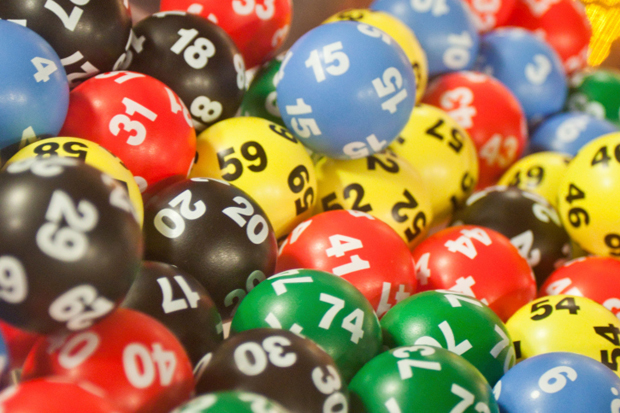I thought that this week I might write about memory loss, but couldn’t remember if I’d written about it last week. Then I remembered that I had written about it, not in The Spectator but in the current issue of the Oldie magazine of which, if I remember correctly, I am the editor. I wrote there about my fear of being exposed by my doctor as mentally deficient in return for the £55 that David Cameron proposes to pay doctors every time they find signs of dementia in any of their patients. So I won’t go on about that again, but will instead celebrate the 20th anniversary of the National Lottery, which I have always hoped might come to the rescue if senility were ever to set in. I have never actually won anything on the Lottery since the then prime minister, John Major, introduced it in 1994, but hope springs eternal.
Those, like myself, who never win anything, let alone the jackpot, like to take comfort from the stories of those whose lives have been ruined by the sudden acquisition of great wealth, who have taken to drink or drugs, lost all their friends, and even ended up bankrupt because of their extravagance. But surveys have tended to show that, on the contrary, lottery winners are happier than they were before, more peaceful, less worried, more contented. How true is this? Last weekend the Daily Mail managed to assemble 20 lottery winners, one for each year of its existence, and picture them over a double-page spread in dinner jackets and evening gowns, clinking champagne glasses with complacent smiles on their faces. Their winnings ranged from £1 million to £40 million, and each gave an account of what he or she had done with the money.
Their aspirations were on the whole very similar. Nearly all of them had bought themselves new houses, usually upgrading from two or three bedrooms to five; though sometimes this seemed rather pointless, as when the winner was either single or childless, and in one instance, when a couple from Greater Manchester bought a big house ‘with a real wow factor’ that included a cinema room, a serious mistake. ‘It never felt like home,’ they said, so they sold it and bought a cosy three-bedroom house.
The other thing that most people did was to buy a new car, or cars, a Porsche being the favourite replacement for the previous Ford Fiesta or whatever. What use is a Porsche on Britain’s gridlocked roads? But then there seemed to be an urge among many lottery winners to emulate the lifestyles of the celebrities — film stars, footballers, criminals — that they read about in the newspapers. Why otherwise would a single woman of 52 living in Sheffield have spent £800,000 on a yacht? Buying racehorses and houses in Spain were other popular choices, as were cruises and exotic holidays in places such as Bali or the Caribbean.
But such hedonistic expenditure seldom seemed to produce lasting satisfaction. ‘When I won,’ said a 60-year-old man from Grimsby, ‘I enjoyed all the luxuries you might expect — even featuring my winning lottery numbers on the bottom of my 50-foot swimming pool.’ He also gave up work, but eventually got bored and only found happiness again when he started working through the night in his own sheet-metal business. Other kinds of lottery winner are so frightened of not seeming ‘normal’ that they spend almost nothing and just carry on doing whatever they were doing before, however dull or backbreaking it might be.
Examples of altruism seemed rare and rather modest in scale. There was a woman in Morpeth who paid for her two sisters to have breast enlargements, and a couple in Torquay who paid for a local scout group to go camping in Canada, neither of which acts of generosity were likely to have made much of a dent in their riches. There was even a boast by a man in Mansfield who had won £40 million that he had ‘put something back’ by volunteering at a local sports club.
There were some happy outcomes, such as parents finally having the money to send their children to university, and sad ones, such as broken marriages and relationships. But the most striking thing about it all is how unimaginative most people are about spending money. They dream for years of great wealth and then, when they finally have it, can’t think of anything interesting or life-enhancing to do with it. ‘My most important buy,’ said a woman in Grimsby, ‘was a rescue spaniel, Suki, who is deaf, bald and nine-and-a-half. She cost me £100, and that’s the best money I’ve ever spent.’ But she didn’t really need £14 million to do that.
Got something to add? Join the discussion and comment below.
Get 10 issues for just $10
Subscribe to The Spectator Australia today for the next 10 magazine issues, plus full online access, for just $10.
You might disagree with half of it, but you’ll enjoy reading all of it. Try your first month for free, then just $2 a week for the remainder of your first year.













Comments
Don't miss out
Join the conversation with other Spectator Australia readers. Subscribe to leave a comment.
SUBSCRIBEAlready a subscriber? Log in